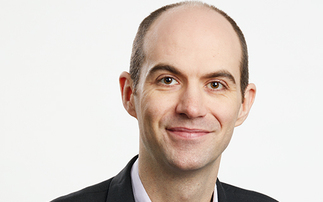Following its response to the 21st Century trusteeship and governance discussion paper, chairman Mark Boyle underlines TPR's determination to drive up standards.
Good governance remains the backbone of a well-run pension scheme.
Yet it is clear from our 21st century trustee research, and our response published last week, that the quality of governance and administration is still not consistent.
There are many highly experienced, skilled and knowledgeable trustees, and many schemes are managed very effectively. But others are not, and there are some trustees who are not responding to our guidance and calls for higher standards.
Too many occupational pension scheme members and sponsors are suffering financial detriment from poor stewardship, and this is unacceptable.
We are not prepared to accept two classes of member - those that benefit from good governance and administration, and those that do not. All members have the right to expect that their retirement savings benefit from effective stewardship.
Evidence shows that poor stewardship impacts on the funding costs of DB schemes and translates into poor value for money for scheme sponsors. So it's important to acknowledge that poor governance is not a 'victimless' problem.
Driving up standards of trusteeship is a priority for us at TPR. We want to see trustees being a knowledgeable, empowered first line of defence for pension scheme members. As a start we have focused this year on some basic duties - we are taking a tough stance on scheme returns and in the defined contribution (DC) world with chairs statement enforcement, we are imposing fines when schemes do not comply. If trustees are unable to get even these basic legal duties right, it is likely to be symptomatic of more serious failings.
It is clear from our research that an effective chair of trustees and the presence of professional trustees on boards has a positive effect on stewardship. We want to take steps to embed the good practice we see in these well-run schemes more widely.
We already make it clear that we expect higher standards from professional trustees but we will be going further next year by setting out clearly what we expect of a professional trustee in practice. This will lead not only to clarification of our expectations of professionals, but also to clarity about our likely enforcement action when these standards are not met.
Additionally, we will clarify how we define a professional trustee so it is clear to whom these higher standards apply.
We also recognise the important role of lay trustees and have found that the most effective boards have a diversity of skills, points of view and backgrounds to draw upon. So while the chair and a professional trustee can provide a framework for good governance, administration and compliance, good lay trustees can bring a vital practical perspectives and expertise.
In particular we'll be focusing on the roles, responsibilities of the key players, whether it's the chair, professional or independent trustee, other trustees, scheme manager, scheme secretary or adviser.
Educating trustees is at the heart of what we do at TPR. One of the questions we raised in our discussion paper was about whether there should be mandatory qualifications for trustees.
Many respondents thought that mandatory qualifications are not the best way of ensuring and measuring trustee competence. And we agree. We are not currently looking to introduce mandatory qualifications. However, we do want to consider how a ‘fit and proper' regime for trustees could be developed, taking into account what we've learned from master trust authorisation and also from the experience of other regulators in the UK and abroad.
To help trustees achieve higher standards, we intend to use our data much more effectively in order to target our communications. We already communicate to different schemes in different ways, tailoring our methods and tone to the scheme size and type. We will take this segmented approach further. So where we have seen a history of good compliance from a scheme, say with the scheme return, our approach may be lighter.
It means we'll be able to focus our efforts and resources on those schemes that are higher risk. And it means not placing extra burdens on schemes that are well run, but instead to focus on less well-run schemes and trustees that need our support.
We will also place increased focus on the importance of having a balanced range of relevant softer skills such as influencing, negotiating and communicating and consider what more we can do by way of education.
We have a diverse, hugely fragmented and complex occupational pension scheme market. We believe that in some circumstances scheme consolidation may be the most appropriate strategy and we will be looking at a range of potential longer term solutions.
TPR recognises the importance of raising the standards of stewardship across the whole occupational pensions landscape. Being clearer in our expectations of trustees, as well as developing tools to assist them to perform their duties more effectively, will be an area of high focus for us in coming months and through 2017.
Mark Boyle is chairman of The Pensions Regulator






